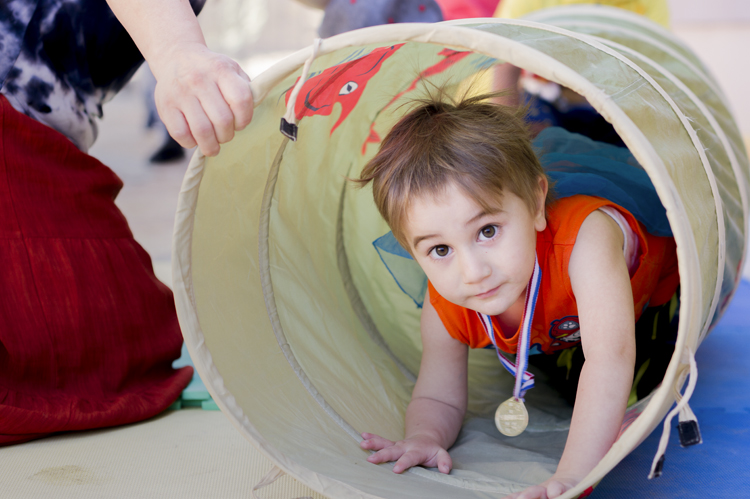Curriculum
Curriculum
At the Center for Early Childhood Education we recognize play as children's' work. It is the way they learn about the world and their roles in it. We implement this developmentally appropriate approach to learning by carefully planning and by adapting the environment, schedule, materials, and activities.
Children need a year of play with real objects and events before they are able to understand the meaning of symbols such as letters and numbers. Learning takes place as the children touch, manipulate and experiment with things and interact with people. Throughout early childhood, children's' concepts and language gradually develop to enable them to understand more abstract or symbolic information. The curriculum not only involves daily activities, but also includes interactions with children and adults as well as the classroom environments, both indoor and outdoor.
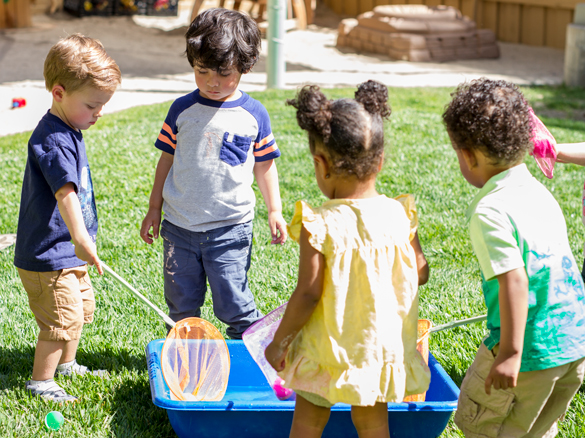
Language
The basis of most learning is language and it is an integral part of all of our curriculum. We model language, for the children through conversations, directed group activities and singing. The children are also supported emotionally by being encouraged to use their words to express feelings and to solve problems. We provide language arts activities such as, books, flannel stories, writing activities, and opportunities for self-expression throughout the day.
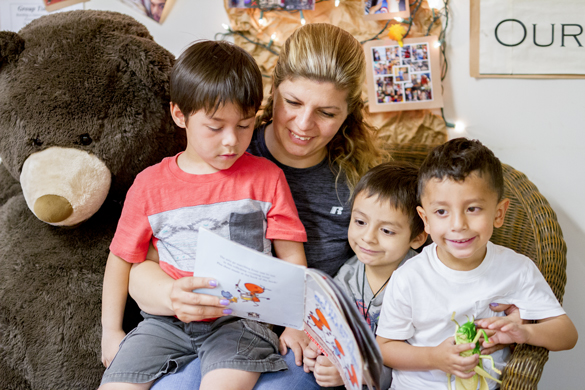
Cognitive Math and Science
The conceptualizing of mathematical learning is going on constantly through the children's' interactions at the center. The children are surrounded by materials that invite them to think and remember color, shape, design and number. As they play, they learn about matching, classifying, seriation and counting. Mathematical concepts are integrated into every area of the program.
Science is the on-going process of discovery, observation, experimentation and understanding. Children are natural scientists as they interact with all aspects of the program. The COC campus provides a lovely environment for observing seasonal change, as well as the studying the life cycle of the butterflies. Additional activities can include caring for classroom plants and animals, cooking, and experiments such as sink and float, magnets, and other materials.
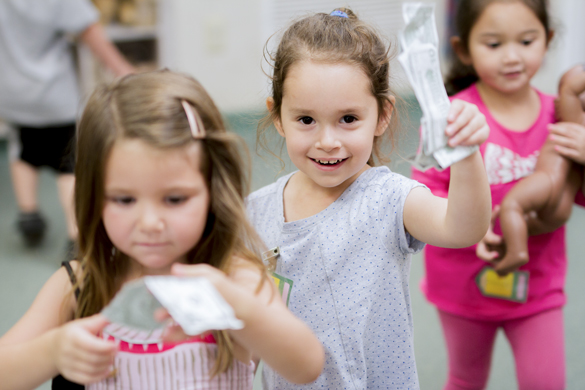
Visual Arts
Art activities include motor perceptual skills, discovery and sensory experiences, and encourage language and socialization. Most important, children are encouraged to be creative, to use their imagination and express their individuality. We emphasize the importance of what happens during the creative process rather than emphasizing the product. The art done at the center is the child's unique effort; there are no models to follow or teacher work added. Each experience is designed to be a success for the child at his/her own level of development.
Many times these experiences cannot be carried home, such as the child who spent time building wonderful creative things in the block corner is meeting his/her creative inventive needs. The child stirring and swirling and pouring at the water table or in the sandbox was dreaming and discovering and meeting his/her creative needs that day.
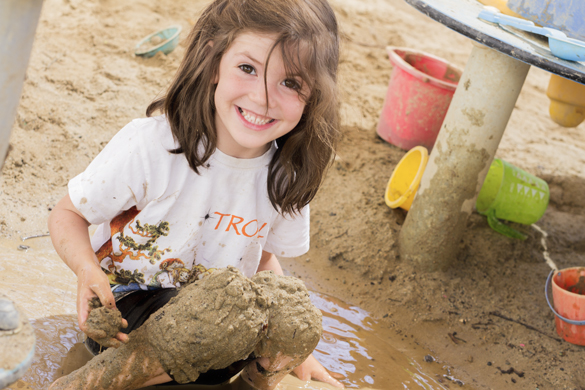
Music & Movement
Music and movement are vital parts of the daily routine at the center. We sing Good Morning, Good bye, It's Clean-up Time. We sing about concepts like color, numbers, and feelings.
Music and movement activities are planned to involve the children as they respond physically to different rhythms; sing, play instruments, express themselves creatively; follow directions and listen quietly. The activities encourage using motor perceptual skills: eye hand coordination, laterality, ocular tracking, spatial relationships, balance and locomotor skills.
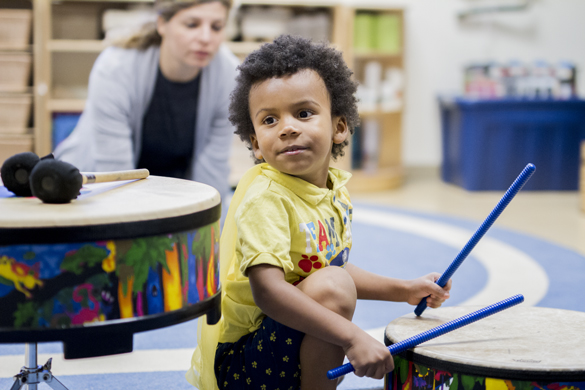
Nutrition
The foods children eat affect their growth, development, ability to learn and general behavior. Including the children in cooking and snack preparation not only provides a healthy nutritional experience, it also provides other learning opportunities. Practical math concepts are applied as the children measure, mix and pour. Cooking involves scientific investigation and discovery. Socializing, sharing food and eating together is a common cultural exchange and reinforces appropriate social behavior.
The center observes good nutrition by using a minimum of sugar, white flour, salt and processed ingredients in the preparation of meals.
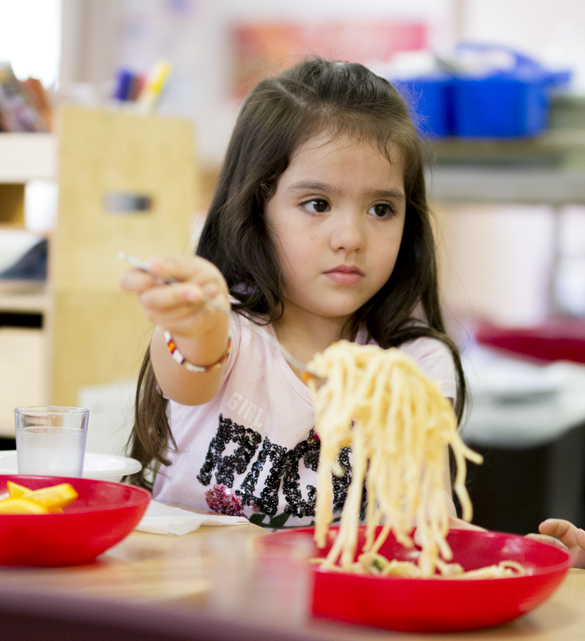
Teaching Children to Value Diversity
Valuing diversity is an important part of the center. We are an inclusive program and value the differences and similarities among people and encourage children to talk openly about their observations. We recognize and value the uniqueness of each of our families. This includes incorporating holidays, language, traditions, foods, family lifestyles that are important to the families in our school into our curriculum. We encourage families to share their customs and traditions.
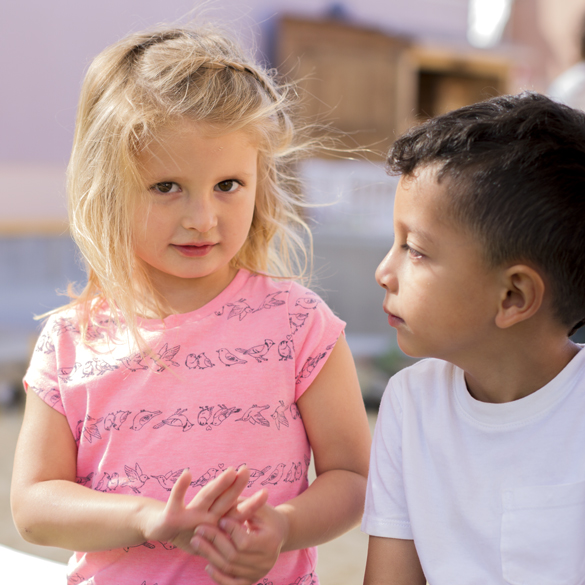
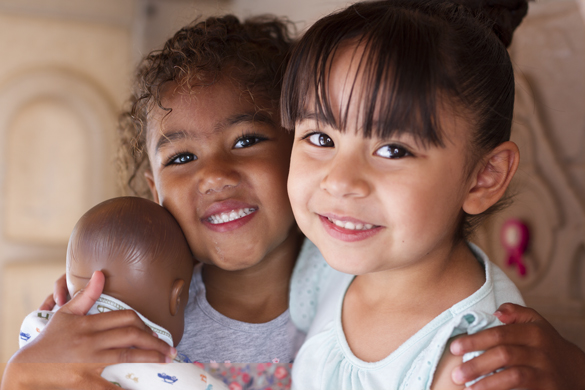

 My Canyons
My Canyons  Canvas
Canvas 
